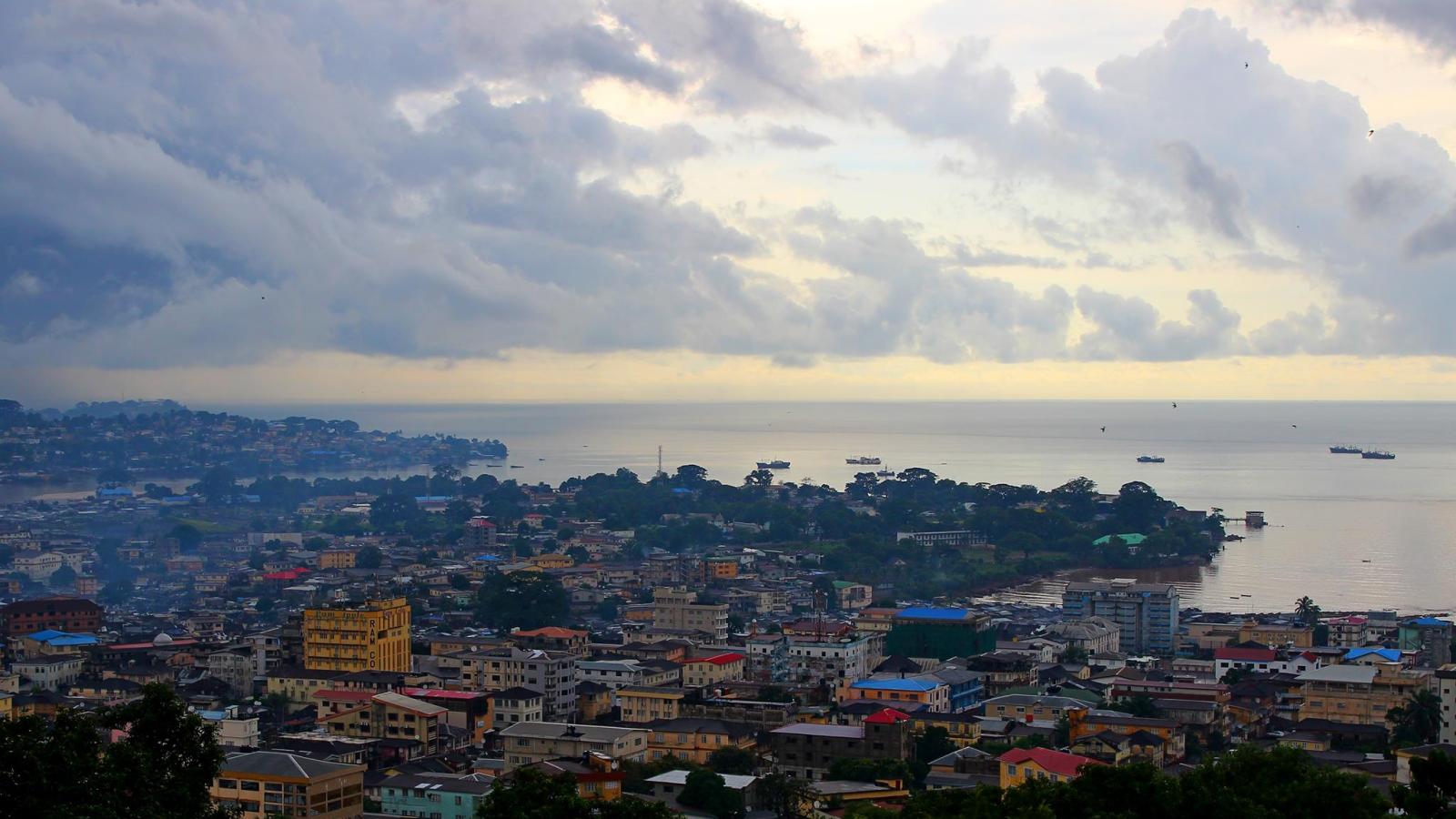UrbanShift Workshop on Planning, Informality and Waste Management
The workshop focused on strategising actions to support the realisation of existing sustainable urban development and waste management plans.
The UrbanShift Workshop on Planning, informality and Waste Management in Freetown, Sierra Leone was held in collaboration with Freetown City Council from 13-15 May 2025. The workshop equipped and inspired city officials with practical tools to bolster their existing waste management and urban planning efforts, within the context of informal settlements, with a specific focus on behavior change. The workshop focused on strategising actions to support the realisation of existing sustainable urban development and waste management plans in Freetown and learning from existing approaches applied in other cities. The workshop was anchored in the GEF-7 funded Resilient Urban Sierra Leone Project (RUSLP) and other ongoing efforts by the city of Freetown to drive sustainable urban development.
Rapid urbanisation in Freetown has been occurring in the absence of comprehensive city planning, development control and enforcement, contributing to uncontrolled urban expansion and sprawl mostly on unsuitable land - including former wetlands, floodplains, steep slopes, and coastlines. As a response, the city has begun pursuing more integrated and proactive approaches to urban planning to guide the built environment and develop resilient and sustainable cities. Solid waste management is an essential part of sustainable urban development and affects informal settlements from the hillsides to the coastlines. The larger proportion of this waste constitutes plastics, which are washed down the hillsides during heavy rains, clogging the already insufficient stormwater drainage system, exacerbating flood risks in the lower coastal areas and increasing the prevalence of vector-borne diseases; and also leading to massive coastal and marine plastic pollution.
The preparation of the Freetown Structure Plan and Area Structure Plans provided an opportunity for integrating waste management and strategies such as the city’s recent Sanitation Strategy, and the recently launched Sanitation by-laws. The exploration of alternative approaches to urban planning and infrastructure provision in informal settlements can enable implementation of contextualised sustainable waste management solutions that are practical, adaptive, low-tech, and engage the community and other stakeholders, while ensuring relevant and effective community sensitisation and behaviour change around waste.
Around 47 participants attended the workshop, drawn from relevant departments in the city of Freetown, national government ministries/agencies related to waste, urban planning and tourism, private sector actors/service providers in the waste management field, NGOs and Community Based Organisations, and practitioners in development and waste management projects.
The workshop spanned two days and featured presentations, multi-stakeholder dialogue, interactive sessions and field visits. The first two days will be an in-person practical training and multi stakeholder workshop. Day 1 focused on key linkages between urban planning and waste management, contextualising waste management in informal settlements, and understanding waste management challenges and regulatory gaps from a multitude of perspectives. Sessions also dove into behaviour change, exploring useful tools for identifying relevant interventions, real-world examples of successful waste management strategies in informal settlements and an in-depth session on practical session on waste management, recycling, and recovery technologies with a waste expert from ICLEI. The workshop concluded with a field visit to Cockle Bay Informal Settlement and Fecal Sludge Treatment Facility to better understand the waste management context in informal settlements, and apply learnings from the training on the ground.
A second workshop is planned to be held in virtual format in July, where ICLEI will begin the process of preparing a waste management roadmap, based on the workshop learnings, with Freetown officials. The results of the workshops will be compiled into a practical output or guide to be handed over to the relevant officials, to guide future implementation of the specified technology or tools.
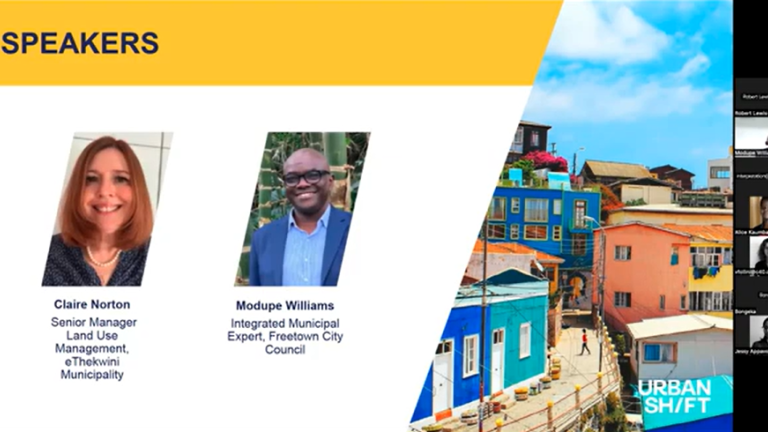
Unlocking Africa's Urban Potential: Improving Informal Settlements through Sustainable Planning
As Africa experiences rapid urban growth, this webinar will shed light on best practices for managing informal settlements and expanding sustainably.
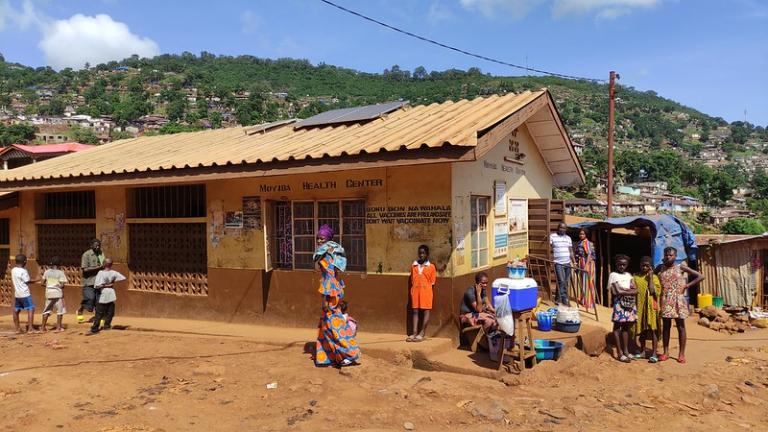
Building an Equitable, Climate-Resilient Future in Freetown
From an inspiring study tour on urban cable cars to insight-filled trainings on climate action planning and finance, UrbanShift has supported Freetown—and all of Sierra Leone—to accelerate its climate goals.
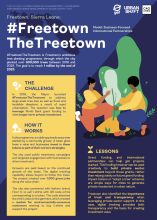
Freetown, Sierra Leone: The Tree Town Campaign Private Sector Engagement
Model: Business-Focused International Partnerships
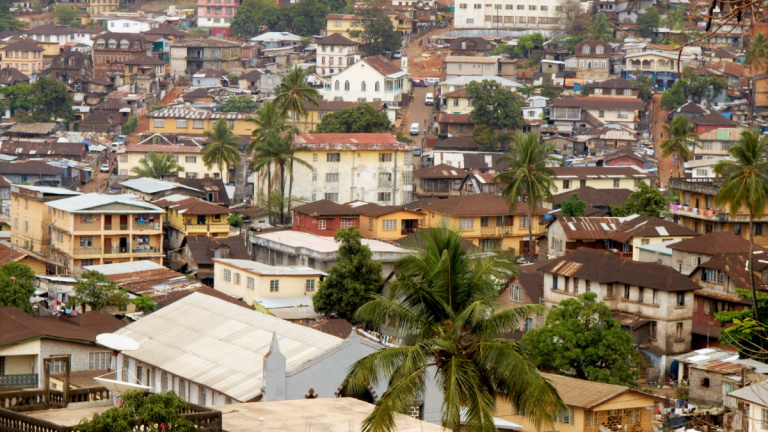
How Africa’s First Chief Heat Officer is Helping to Create a More Resilient Freetown
As extreme heat rises across the globe, Eugenia Kargbo is showing how cities can prioritize strategies to mitigate risks and support residents' wellbeing.
